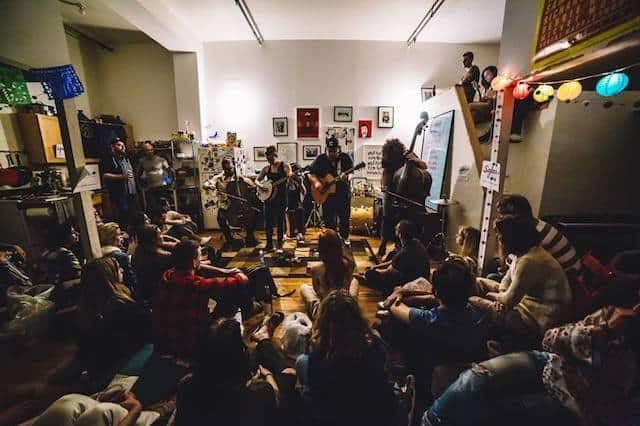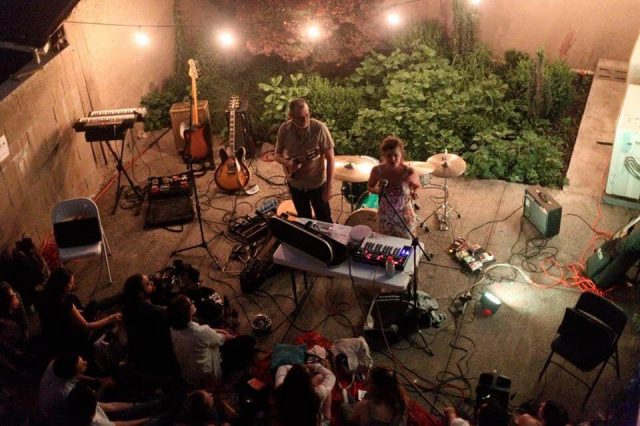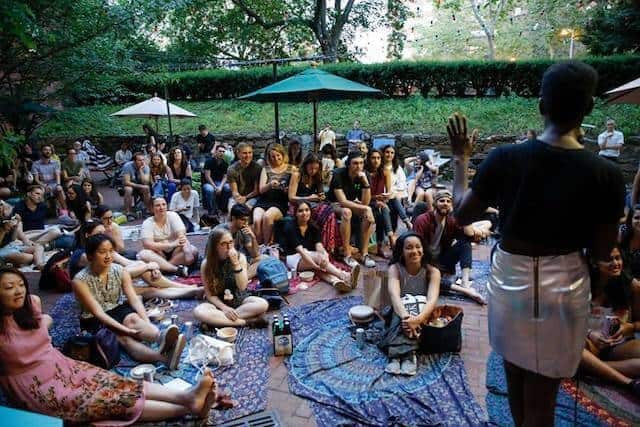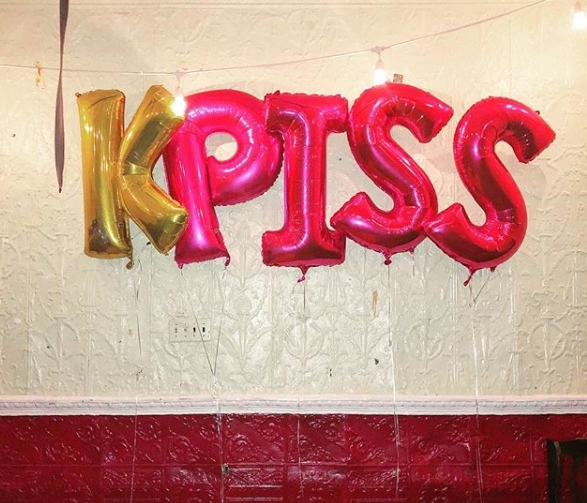
As technology continues to crack open even the most accepted industry models, more and more fields are being touched by crowdsourcing platforms which pull from users to allow for cheaper, quicker services. Uber, Lyft and other rideshares allow for strangers to carpool, Airbnb allows for anyone to turn their home into a hotel, and now the music industry too is being affected.
While house shows long predate the internet, platforms like Sofar (it stands for Songs From a Room) and Artery make it much easier to transform any space into a stage. The websites don’t seem like too personal an affront to the established music industry, and they’re certainly a boon to smaller acts.
________

In our search for All Things Affordable, Brokelyn recently talked with Sofar’s NYC Assistant Coordinator and NYC Assistant Director Sophie Everhard and Amanda Presson. They explained how Sofar works: For artist’s who want to get involved, you apply on Sofar’s website, sending over some basic information, and at least one video of you performing live. If local teams dig your work, they’ll hit you up, you’ll perform, and you’ll be paid (either in cash or publicity). If you’re tryna host, you apply and, if accepted, host a show the Sofar people will clean up from afterwards. You will not be paid, but some of your friends can come for free, and you’ll have an opportunity to plug your business, social media profiles, what have you. Both commercial and residential spaces are eligible to be hosted in, so long as they can fit at least five people. Lastly, guests can find events online on Sofar’s website, apply for tickets, and then wait to hear the secret location the day before the show and go.
Most shows are BYOB, and a one-person ticket costs $15. One person can purchase up to three tickets for a show.
Sofar started as a passion project in London back in 2010, before expanding first to New York, and then a number of other cities.The founders of Sofar, Rafe Offer and Rocky Start, felt like they couldn’t connect with the live music they went to see at bars and venues because, “so many people were around them talking or clinking their glasses together. So they decided to do something different,” Presson told us.
________

The model itself isn’t making anyone rich, according to Sofar’s website – the company is simply trying to break even. Unlike rideshares, which proved an easily corporatized industry bigger and harder to regulate than the traditional medallion gatekeeping would make it seem, the music industry is not quite so monetize-able, it would appear.
It’s an admirable concept that, in theory and practice, seems to be working to bring affordable shows to the most local of venues in 366 cities worldwide. Like Uber bypasses lets taxi drivers bypass having medallions, Sofar bypasses permits and the corporate-level performance standards which gate keep most of the bigger venues. On the other hand, the reason Sofar’s profile is so much lower profile than Uber is because it offers a more intimate service which is most often practiced unregulated, among friends. The service it provides is a friendly one, one many people can find within their own networks and don’t think to seek out from a formal platform besides, like, Facebook events.
Then again, with so many transplants moving to the city in recent years, services like Sofar are likely most helpful and the biggest reliefs to those who lack a network here.
Leave a Reply



